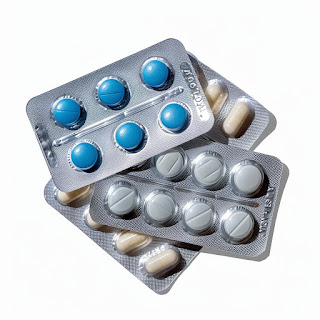Optimizing Weight Loss: Phentermine in the Morning and Topiramate at Night
Combining medications for weight loss can be an effective approach to managing obesity and achieving desired health outcomes. When it comes to pairing phentermine with topiramate, timing plays a crucial role in maximizing the benefits of these medications. In this article, we explore the benefits, considerations, and strategies for taking phentermine in the morning and topiramate at night to optimize weight loss and promote wellness.
Understanding Phentermine and Topiramate
Phentermine is a stimulant that suppresses appetite and boosts energy levels, making it an effective weight loss aid. Topiramate, on the other hand, is an anticonvulsant medication that can help reduce food cravings and enhance feelings of fullness. When used in combination, phentermine and topiramate can target different aspects of weight management, offering a comprehensive approach to combating obesity.
Phentermine in the Morning: Boosting Energy and Curbing Appetite
By taking phentermine in the morning, individuals can harness its energizing effects to kickstart their day. Phentermine can help increase alertness, focus, and metabolic activity, setting the tone for a more active and energetic day. Additionally, phentermine's appetite-suppressing properties can support individuals in making healthier food choices and reducing calorie intake right from the start.
Topiramate at Night: Enhancing Satiety and Curbing Nighttime Cravings
When taken at night, topiramate can help individuals manage nighttime cravings and promote feelings of fullness, which can be particularly beneficial for those prone to evening snacking or overeating. By enhancing satiety and reducing the desire to eat late at night, topiramate can support better adherence to dietary goals and contribute to overall calorie control.
Complementary Effects: A Day-Night Weight Loss Strategy
Pairing phentermine in the morning with topiramate at night creates a day-night weight loss strategy that leverages the complementary effects of these medications. While phentermine jumpstarts energy levels and appetite control during the day, topiramate reinforces satiety and food cravings management, creating a balanced approach to weight loss throughout the 24-hour cycle.
Optimizing Sleep Quality and Metabolic Function
Strategically timing medications like topiramate at night can also have benefits for sleep quality and metabolic function. Improved sleep hygiene and quality are essential for overall health and weight management, and topiramate's effects on appetite control can contribute to better sleep habits by reducing disruptions caused by late-night cravings or snacking.
Consulting with Healthcare Providers for Personalized Guidance
Before implementing a regimen of phentermine in the morning and topiramate at night, it is crucial to consult with healthcare providers for personalized guidance. Healthcare professionals can assess individual health needs, weight loss goals, medication tolerability, and potential interactions to tailor a treatment plan that optimizes the benefits of this combination while minimizing risks.
Managing Potential Side Effects and Adverse Reactions
As with any medication regimen, taking phentermine and topiramate together may entail potential side effects and adverse reactions. Common side effects of phentermine and topiramate include dry mouth, dizziness, changes in taste, and gastrointestinal disturbances. Monitoring for side effects, staying hydrated, and reporting any concerns to healthcare providers are essential steps in managing medication reactions.
Modifying Dosages and Adjusting Timing as Needed
Individuals may find it beneficial to modify dosages and adjust the timing of phentermine and topiramate based on their responses and preferences. Working closely with healthcare providers, individuals can explore dosage adjustments, split dosing options, or alternative timing strategies to optimize medication effectiveness, manage side effects, and enhance adherence to the treatment plan.
Tracking Progress and Adjusting Treatment Plans
Regularly tracking progress, monitoring weight loss outcomes, and evaluating the effects of phentermine and topiramate are essential for optimizing treatment effectiveness. By keeping a record of dietary habits, energy levels, sleep patterns, and medication responses, individuals and healthcare providers can collaboratively adjust treatment plans to address evolving needs and promote sustainable weight loss results.
Implementing Lifestyle Changes for Comprehensive Weight Management
While phentermine and topiramate can be valuable tools in weight loss, they are most effective when combined with lifestyle changes for comprehensive weight management. Incorporating a balanced diet, regular physical activity, stress management techniques, and adequate sleep hygiene can enhance the effects of medications and support long-term success in maintaining weight loss and overall well-being.
Conclusion: Harnessing the Power of Phentermine and Topiramate
By strategically timing the intake of phentermine in the morning and topiramate at night, individuals can create a synergistic approach to weight loss that addresses appetite control, energy balance, and metabolic regulation throughout the day. This day-night combination strategy offers a holistic framework for optimizing weight management efforts and promoting sustainable results in achieving health and wellness goals.




Comments
Post a Comment